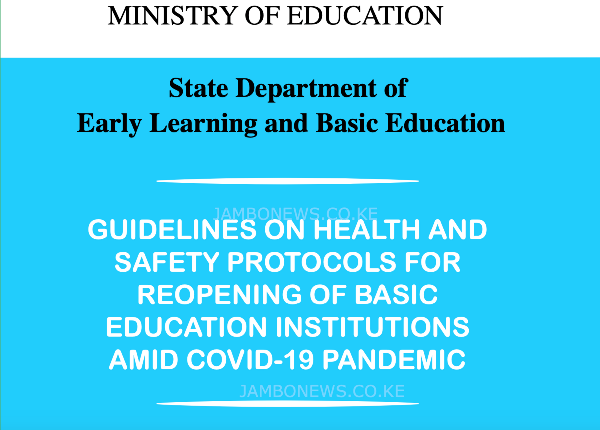MoE Guidelines on Classroom Management, Psychological and Professional Support for Teachers
Teachers and learners or trainees will wear facemasks while in classrooms or in other learning facilities. This is due to the novel coronavirus pandemic and measures have to be put in place to curb the spread of the virus. Besides this, the following are the guidelines on how to manage classrooms.
- Teachers and other staff members shall regularly wash their hands with soap and water or use hand sanitizers before entering classrooms or lecture halls or other tuition areas.
- Teachers shall ensure that ALL learners/trainees observe hygiene through washing hands with soap and water before entering classrooms and other tuition rooms.
- Teachers shall demarcate by marking positions for learners’ desks positions to ensure physical distancing of one meter is observed in classrooms.
- During games and Physical Health Education, individualized activities shall be implemented to ensure physical distancing is observed.
- Teachers shall avoid individual physical contact with learners/trainees and they shall ensure the one-meter social distancing rule is followed to the letter.
- Spacing between trainees/learners when in classrooms shall not be less than one meter in all directions.
- Learners/trainees shall use available learning materials such as textbooks on an individual basis as sharing shall be avoided at all times.
Psychological and Professional Support for Teachers and Non-teaching Staff
The Ministry of Education together with the Ministry of Health, TSC BoM, and county governments will support teachers and other education personnel in their own health, stress management, and well-being. They will do the following.
- Build the capacity of teachers on ICT to promote interactive learning and support learning recovery through online professional development, coaching, and the use of ICT.
- Develop programs for the professional development of teachers and institution personnel on issues that include posting COVID-19 instructional strategies, General and mental health, tracing and mapping of leaners who have been abused and ICT teaching skill, and safety and communication.
- Provide appropriate psycho-social support to teachers and education officials including caregivers to manage the impact of COVID-19 and deal with future crisis
- Build the capacity of teachers in life skills, guidance, and counseling to effectively respond to changes in social behavior and in turn, support distressed children
- Strengthen teacher’s peer-to-peer support groups and provide online professional development and coaching sessions to support teachers’ wellbeing.
- Train Heads of Institutions and teachers on coordinated communication response and approaches to post-COVID-19 traumatic stress disorder.
- Provide support in form of inspections/follow up on institutional contingency plans development and implementation
- Build the capacity of education officials and teachers in assessments, monitoring, and evaluation of learning
- Provide psychosocial support by engaging teachers and non-teaching staff to talk about their expenses and more time for active engagement including team building.
- Build the capacity of teachers to monitor learner/trainee and identify those experiencing particular difficulties when they are back in the institution.



Comments are closed.